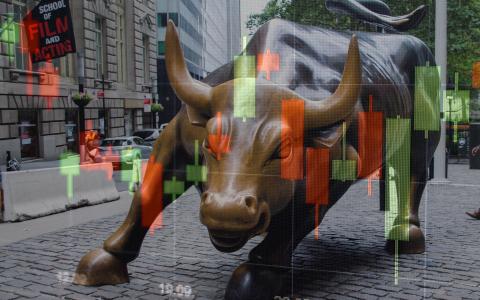
In light of heightened inflation, fluctuating interest rates, and escalating geopolitical concerns, renowned Wharton professor Jeremy Siegel champions stocks as the optimal investment avenue.
During a recent dialogue with CNBC, Siegel emphasized the merits of stocks over bonds, especially given the robust economic growth underpinned by the surge in productivity. This surge, he notes, owes partly to the burgeoning integration of artificial intelligence in various sectors.
Highlighting the economic landscape, Siegel pointed out that the GDP growth of the U.S. in 2023 is roughly double that of the previous year. Meanwhile, job increments in the current year stand at just half of what they were a year ago. This scenario underscores an era characterized by enhanced efficiency and productivity gains for companies.
Siegel expressed unwavering faith in the potential of AI, stating, "Our growth trajectory this year is propelled by productivity enhancements.
Productivity-fueled growth acts as a counter to inflation, bolsters earnings, but does push yields higher. Given the scenario of increased real growth, borrowing, and capital investment, my preference leans towards stocks rather than bonds."
Moreover, if the rise in bond yields is primarily attributed to America's persistent deficits instead of robust economic vitality, it might signal even higher inflation in the offing. Yet, this aligns perfectly with Siegel's steadfast belief in favoring stocks over bonds. Drawing on historical data, he commented on stocks being reliable bulwarks against inflation over extended periods.
Even geo-political upheavals, such as the Israel-Hamas, Russia-Ukraine, and China-Taiwan situations, don't deter Siegel from his bullish stance on stocks. Contrarily, he perceives such disturbances as potential opportunities for acquiring stocks. Reflecting on historical patterns, Siegel remarked, "Geopolitical challenges often emerge as buying opportunities.
Adverse developments in the Middle East or elsewhere may exacerbate before they recede. However, it's well acknowledged in investment circles that stocks thrive amidst uncertainties. Hence, I firmly believe that, in the grand scheme, geopolitical risks present opportunities for stock acquisitions rather than divestments."
Attributing the recent 8% dip in the S&P 500 since July mainly to soaring interest rates, with the 10-year US Treasury yield nearing the 5% mark, Siegel remains optimistic. He reasons that these elevated rates stem from economic growth outstripping expectations, which invariably signifies promising corporate earnings in the near future.
Furthermore, Siegel voiced his confidence in the stock market's resilience against climbing interest rates. He added, "In a broader historical context, these real yields, although elevated compared to the past decade or so, don't set any records. If authentic growth is driving these yield hikes, I don't perceive them as detrimental to stocks."



